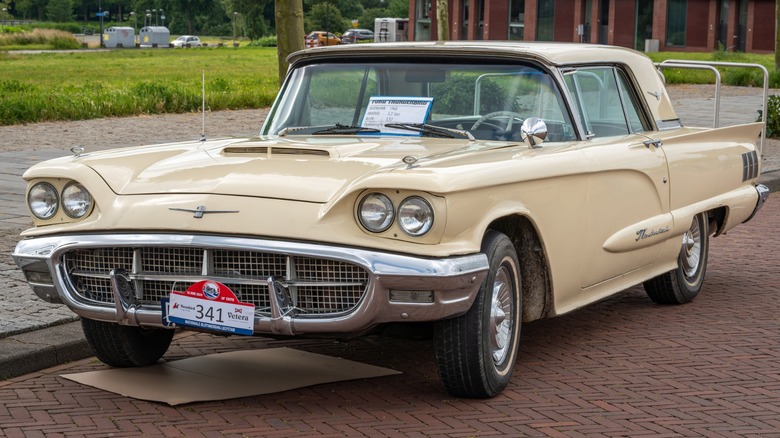Can A Dealership Sell You A Car If It Doesn't Have A Title?
If you go to a dealership to buy a car, and, for whatever reason, the dealer sells you a used car, saying that it doesn't currently have a title but the title will come later, you should run. While there's no singular federal law governing vehicle titles, states generally agree that it's illegal to sell a car without a title.
The only way for a car to be legally considered sold in the U.S. is when the title is transferred to the buyer, as merely having a proof of sale is not enough to transfer ownership. There's hardly any reason for a car not to have a title, because there are just so many different types of titles, all of them accommodating the different statuses a car could possibly have.
However, as with most things, it's usually not that simple. There are some exceptions to this, and the most obvious is when the car is new. A new car in the dealership's inventory, of course, doesn't have a title. Instead, what it has is something called a Manufacturer's Certificate/Statement of Origin (MCO/MSO). In many states, like California, for example, this is the document used to create a title in your name after you've bought a new car. The dealer is required to submit your title application within a set timeframe, which is usually 30 days.
What exactly is a title?
The first step to knowing if a car even has a title is recognizing one when you see one. As there's no one universal document called a car title to tell you that what you're holding is indeed a car title, you'll have to look for clues. According to the American Association of Motor Vehicle Administrators (AAMVA), the definition for a title, or Certificate of Title, is the legal proof of ownership, issued by a state motor vehicle agency (the DMV). Therefore, the first thing is that it must be a document with the state's seal on it.
Next, it'll hold some vital information on the owner of the car and the car itself. You should see the name and address of the owner or co-owners; there should be some identifiers, like a vehicle identification number (VIN), the make, model, and model year, the name of the lien holders if the car is on loan, odometer readings and mileage information, and finally, brandings and other statuses the car might hold. The last part is especially important for cars with a rebuilt title or ones that have been severely damaged, because a branded title is how you know if accidents and damage have been properly documented.
The exceptions to buying a car without a title
As said earlier, the most common exception to purchasing a car without a title is when you buy a brand new car. Even so, the dealer is required to give you, as the buyer, a title within 30 days or so, and failure to do so could mean you have a claim against them. In that time, you could drive your car with temp tags.
That said, there are some vehicles that don't require a title. For example, the Massachusetts Registry of Motor Vehicles stipulates that passenger vehicles with from model year 1980 and older, purchased before November 26, 1990, are exempt from titling. Similarly, in Georgia, cars from 1962 or earlier do not require titles, along with vehicles not manufactured for highway use. The laws are similar in many other states — the idea is that if it's old enough, or if it's not especially powerful, it doesn't necessarily need to be titled, and it's therefore sold with a certificate of title.
If there's an active contract on the car, you may also never receive the title. In that case, there would be an electronic title, also known as an ELT, digitally stored in the DMV's database. In some states, like Florida, you can request a physical copy of your ELT if you no longer have a lien for a small fee. So, if a dealer tells you that your title is electronic because you have a loan, your best bet is to verify it by running an online NMVTIS-based check.


